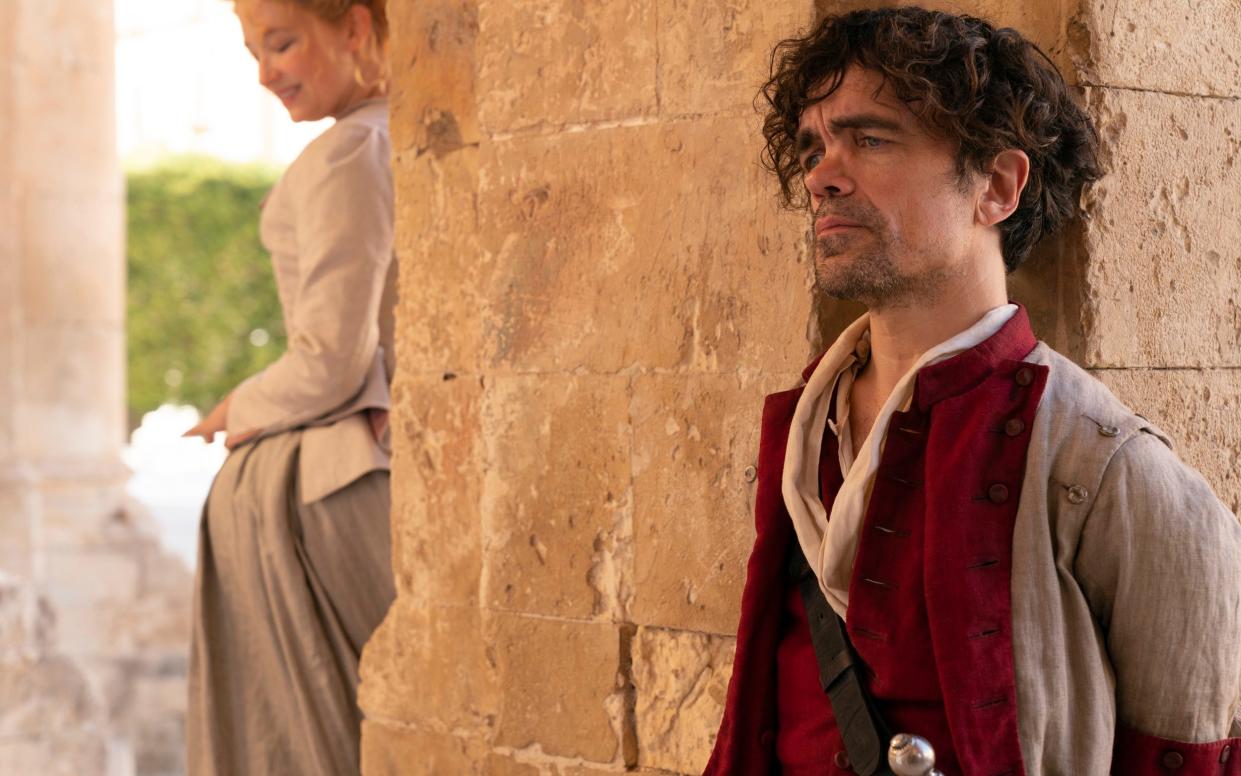Why we all relate to literature’s ‘ugly’ heroes

Once, as I was chatting to Andrew Lloyd Webber, we started talking about The Phantom of the Opera, one of the most successful entertainments of all time. He told me about being at a lunch surrounded by supermodels, all of whom were fans of his mega-hit, and all of whom, to his surprise, identified with the Phantom. But perhaps we shouldn’t be surprised.
This disfigured creature, infatuated with the beautiful singer Christine, can speak to all of us. We all sometimes feel that we are unworthy of love and we all experience a sense of ugliness, whether it’s on the surface or deep within us. Like the Phantom we are all at the mercy of how others see us.
The tragic character who is afflicted by a perceived ugliness yet appreciates beauty and loves unrequitedly is an enduring archetype throughout literature. Over the coming month or so we will see two versions of perhaps the greatest example, Cyrano de Bergerac, Edmond Rostand’s 1897 play. There’s the return of Martin Crimp’s acclaimed 2019 stage adaptation, directed by Jamie Lloyd and starring James McAvoy, and then Joe Wright’s already widely feted musical film version, with Game of Thrones star Peter Dinklage.
Here is a character who, in the original, is blessed with the gift of the gab yet cursed by a supersized snozzle. Afflicted by an unrequited passion for his cousin Roxane, he feeds ardent, poetic lines to his ineloquent dashing rival/protégé Christian – he can thus give vent to his feelings, but this strategy only heightens his agony.
Dinklage wears no fake nose; his own appearance (shaped by achondroplasia) and life experience stand in its stead. Lloyd’s production takes a similar liberty. No prosthetic proboscis for McAvoy; it’s left to the audience to picture it in their mind – or rather, picture it in Cyrano’s mind, as a perceived deficiency that warps his self-image. In this age of anxiety, fuelled by social media, it feels particularly potent that his outsiderness is internalised. The question of whether any of us really measure up has been brought sharply into focus by the curated perfection of Instagram posts or Facebook bragging.

As usual, Shakespeare was ahead of the game when creating a character, perceived by others as deformed, who pierces our hearts with the power of rhetoric. In The Tempest, Caliban has an eloquence that shames the whiplash prejudice of his de facto colonial overlord, Prospero. Miranda has tutored Caliban. Though he is said to have been bestial and predatory to her, warranting punishment, Shakespeare gives this “monster” peerless poetry, displaying gentleness: “The isle is full of noises,/ Sounds and sweet airs, that give delight and hurt not”.
The outcome for the heroic “grotesque” is almost always bittersweet and they are never able to fully escape the tragedy of their situation. In Victor Hugo’s The Hunchback of Notre-Dame, the disfigured Quasimodo – living in a medieval Paris that flinches from his deformities as the stamp of the devil, and compounds his alienation by mocking them – acts like a chivalric knight in shining armour, protecting the beautiful gypsy-dancer Esmeralda by whisking her from the gallows to the sanctuary of the cathedral.
Hugo pushes the unrequited dynamic to a heartbreaking degree. Quasimodo is mortified at the discrepancy in their appearances, and Esmeralda has her own guilty anguish: “She often reproached herself for not feeling a gratitude which should close her eyes, but decidedly, she could not accustom herself to the poor bell-ringer. He was too ugly.”
Small wonder that the Hunchback has enjoyed many incarnations; actors from Charles Laughton to Anthony Quinn and Anthony Hopkins have relished getting into elaborate make-up to bring to life a human gargoyle who finds expression in the bell-ringing that has deafened him. Quasimodo emblemises the self-sacrificing nature of true love. Looking at Esmeralda’s hollow beau, Phoebus, he gleans that “it’s only necessary to be handsome on the outside”. He endures that knowledge and, in a grisly way, attains the tragic stature of Romeo; at the end, skeletal, embracing his deceased beloved in a charnel house.

Like Cyrano, The Hunchback of Notre-Dame acknowledges that the link between physical desire and the “higher” yearning for a kindred spirit are not easily reconciled. Roxane vows that she’d love Christian even if he was grotesque. Cyrano knows the truth.
There’s also Frankenstein’s monster, the sadly hideous lab-fashioned being who yearns, in vain, for a female companion. The destruction of this possibility, for all its apparent life-saving logic, is one of the most chilling moments in Mary Shelley’s novel. “The wretch saw me destroy the creature on whose future existence he depended for happiness, and with a howl of devilish despair and revenge, withdrew…”
Prejudice about appearance can, of course, engender the monstrosity it so callously infers. These stories are often touched with a brooding darkness that speaks of the malign power of social and amorous rejection.
The “courtship” between the masked Phantom and the beautiful Christine whom he takes into his netherworld, in the bowels of the Paris Opera, is steeped in sinister, obsessive forces. As the success of Lloyd Webber’s musical attests, we come to love the Phantom, yet the anti-hero conjures the darker side of desire, where the thrill of danger goes hand in hand with the stuff of nightmares.
These stories aren’t just gripping in themselves, then, they allow us to get a grip on the most crucial questions of who we are, who – and how – we love, and how we see ourselves. They maximise the sense of how fiendishly difficult the closest relationships are.
We have all been, or will find ourselves, on islands of loneliness and lovelessness. We approach these great fictional social castaways with the confidence that they’re not us. To our shock we realise that, of course, they absolutely are.
Cyrano de Bergerac is at the Harold Pinter Theatre, London SW1, from February 3: haroldpintertheatre.co.uk. Cyrano is in cinemas from Feb 25


